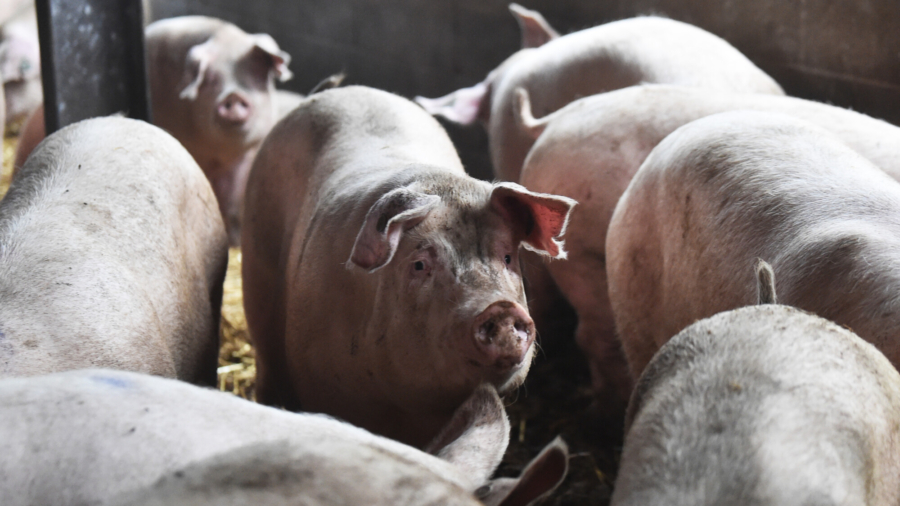Over 10 percent of pork in UK supermarkets have been infected by a potentially fatal superbug, according to an investigation.
British supermarkets Asda and Sainsbury’s have discovered that some of their pork is infected with MRSA, a variant of enterococci bacteria that has antibiotic resistance. Over 10 percent of the pork sampled in the investigation—including joints, chops, and mince—have shown resistance to “last resort” antibiotics used to treat serious illness in humans.
In serious cases, the bacteria could infect the bloodstream, heart, and brain.
In 2016, a UK government review estimated that fatalities due to superbugs reaches at least 700,000 people worldwide per year, which may rise to 10 million deaths by 2050 without preventative measures. Antibiotic resistance is considered one of the biggest public health threats globally.
The news came after the University of Cambridge conducted tests on 97 meat samples sold in the UK and found that one from Sainsbury and two from Asda tested positive for MRSA. According to the Bureau of Investigative Journalism and the Guardian, this is the first time that a livestock-associated strain of MRSA has been discovered in British pigs. The infected products also include pork sold with the “Red Tractor assured” label and RSPCA-assured and organic meat.
“These findings suggest that antibiotic use is by no means under control in parts of the meat industry,” said Tim Lang, professor emeritus of the Center of Food Policy at City University in London. “Buying any food is a trust relationship; no consumers have X-ray specs to see what these findings show. There’s no label.”
Antibiotics are used in the meat industry to treat and prevent diseases. Farms where livestock are raised in overcrowded conditions can act as a breeding ground for drug-resistant diseases that are potentially fatal in humans.
Transmission takes place between live animals, but it can be passed onto humans if the meat is consumed without being properly cooked. Scientists, animal protection organizations, and supermarkets are expressing their worry and calling for stricter measures on antibiotic prohibition.
The findings “must be taken seriously,” professor Mark Woolhouse of infectious disease and epidemiology at the University of Edinburgh told the i newspaper. Despite there being no signs of a superbug pandemic, he says that “surveillance is our first line of defense; if problems do arise, the sooner we know about them, the sooner we can take the actions necessary to protect public health.”
The Royal Society for the Prevention of Cruelty to Animals expressed their hope to “improve the lives of farm animals as well as safeguarding human health” with “higher welfare systems [that] would require lower antimicrobial use which, in turn, would lower the risk of developing antimicrobial resistance.” In response to the research results, Red Tractor said its antibiotics are required to be used responsibly under the direction of a veterinarian.
Mark Holmes of Churchill College–University of Cambridge conducted the tests, which were commissioned by the Alliance to Save Our Antibiotics, who said the results were “extremely worrying.”
Since 1997, the EU has banned glycopeptide, a fast livestock fattener that was blamed for spreading inter-transmissible superbugs from farm animals to people. The EU recently also introduced tougher regulations that banned feeding antibiotics to healthy animals. Now, calls are rising for the UK to do the same.
“The UK government needs to end the routine use of antibiotics on farm animals, as the EU has recently done,” said farming campaigns manager Lindsay Duncan of World Animal Protection. “And to acknowledge that a reduction in animal product consumption is needed to address the countless issues caused by factory farming.”

